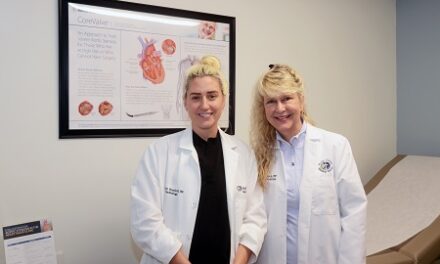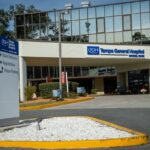A $40 million major upgrade to the Miami VA Healthcare System’s operating rooms has made the center’s surgical care capabilities second to none in the region. The 2,400-square-foot facility features 11 new state-of-the suites providing surgeons and staff with a fully integrated, high-tech operating room environment. The cost of the project also included related facility upgrades and rental of mobile operating units, which allowed the center to care for veterans during construction without delaying necessary procedures.
 “Veterans will now have access to one of the most technologically advanced operating rooms in the country,” said Dr. Seth Spector, Associate Chief of Staff for Operative Care and Chief of Surgery.
“Veterans will now have access to one of the most technologically advanced operating rooms in the country,” said Dr. Seth Spector, Associate Chief of Staff for Operative Care and Chief of Surgery.With 452 hospital beds, the Miami VA Healthcare System serves veterans in Miami-Dade, Broward and Monroe counties, which have an estimated veteran population of 175,000. In addition to serving South Florida, the Miami VA is the tertiary referral facility system providing specialty services to other VA facilities in Florida and the country.
“Now that we are up and running in our new facility, we will be able to accommodate more referrals from other VA centers,” said Dr. Spector. “This will allow the VA to keep surgeries within our system rather than feeding them out to communities where it is difficult to track patients’ medical records, pathologies and post-operative care.”
Highlights of the new facility include:
• Capability to videoconference with other surgeons when working on a difficult or complex surgery.
• LiveData that engages in a technological and clinical collaboration to develop patient-centric communication tools designed to promote teamwork, enhance operational efficiency and support a culture of safety.
• Numerous flat screen monitors which let the surgical team call up the patient’s X-rays, MRI or CT scans on the screen from all other hospital departments; helps the anesthesiologist track how the patient is doing; and allows scrub nurses and students to watch the operation.
• A customized-designed imaging system that integrates intravascular ultrasound, dynamic CT imaging, angiography and other imaging technologies.
• daVinci Surgical System enabling surgeons to perform delicate and complex operations through a few tiny incisions with increased vision, precision, dexterity and control.
“We now have the ability for personnel to communicate between the rooms and with other departments, such as pathology,” said Dr. Spector. “If I send a specimen to be reviewed during an operation, the pathologist can call into my room and put the slides up so I can see what he is looking at. This saves time from having to scrub out and go to another room.”
Dr. Spector noted that the new operating rooms have built-in systems for safety. “Patient safety is most paramount to the VA,” he said. “We practice a crew resource model so everybody is an equal member of the team and does not hesitate to speak up about issues they see. We have technologies that take us through processes step by step to make sure patients are safe.”
With safety a top priority, Dr. Spector said the VA analyzes issues that might be overlooked in other hospitals. “In each of our surgical programs, if we see several episodes of something, we can bring all the data together and show there might be a bigger issue. We track those issues to help us move safety forward. We also have meetings within our VA network of hospitals in Florida and Puerto Rico to enhance patient safety.”
The Miami VA’s surgical teams had to operate in mobile surgical units for 34 months prior to completion of the new facility. According to Dr. Spector, quality measures and staff morale remained very high during that time, although the team was eager to move into its new space.
“We have a very dedicated staff that does its job very well,” said Dr. Spector. “They are committed to the VA’s mission of excellence, and knew there was a light at the end of the tunnel.”
The Miami VA has 100 surgical programs, handling 4,200 cases a year, with 35 surgeons regularly using the facility. The most common surgeries are orthopedics, spine, eyes and general surgeries.
“For the future, we will continue to add specialists, allowing us to provide the most optimal care,” Dr. Spector said. “I am not a veteran, but if I could get my care here, I would get it in a heartbeat. Not just in surgery, but in all our different specialties.”


























